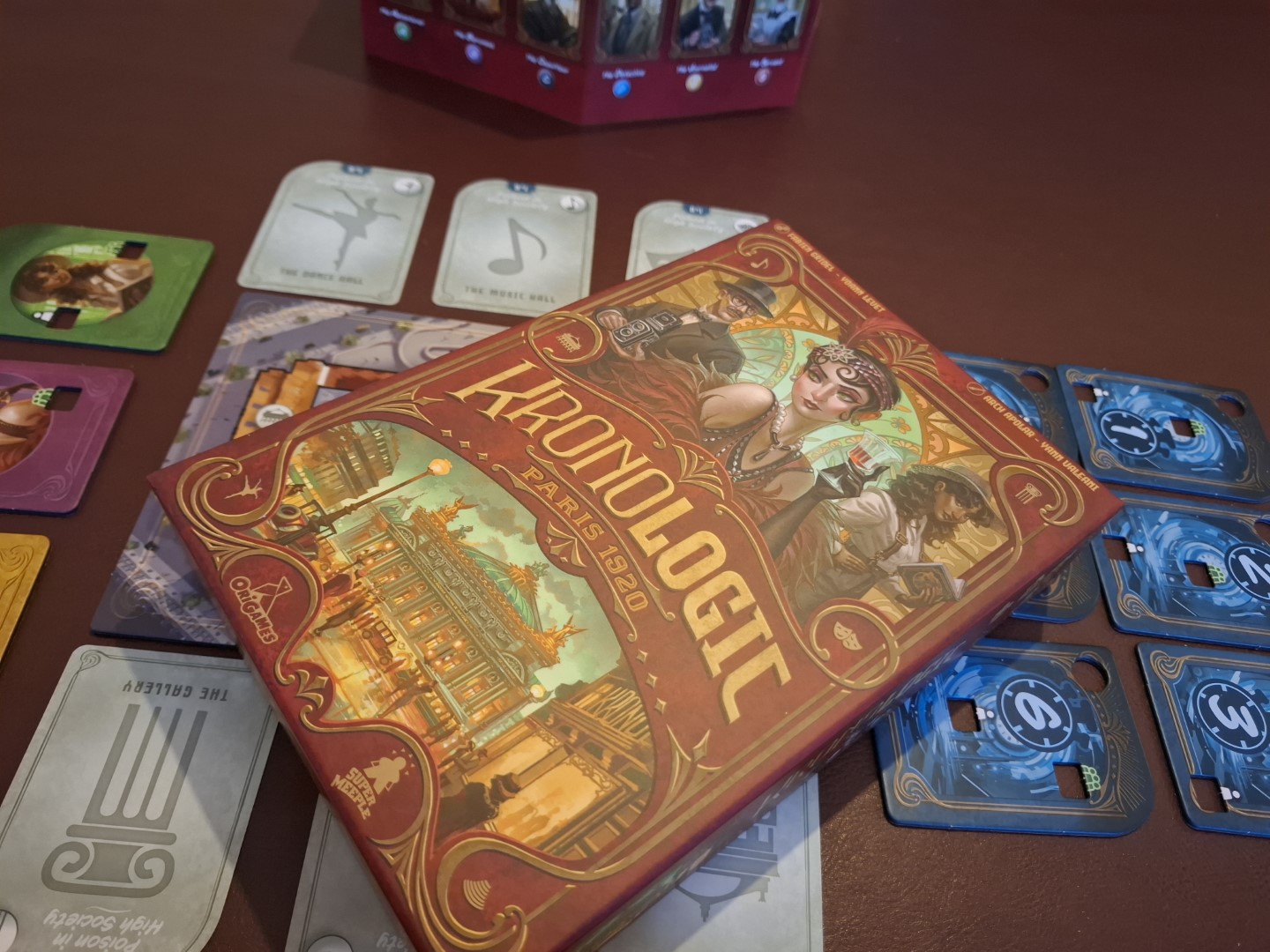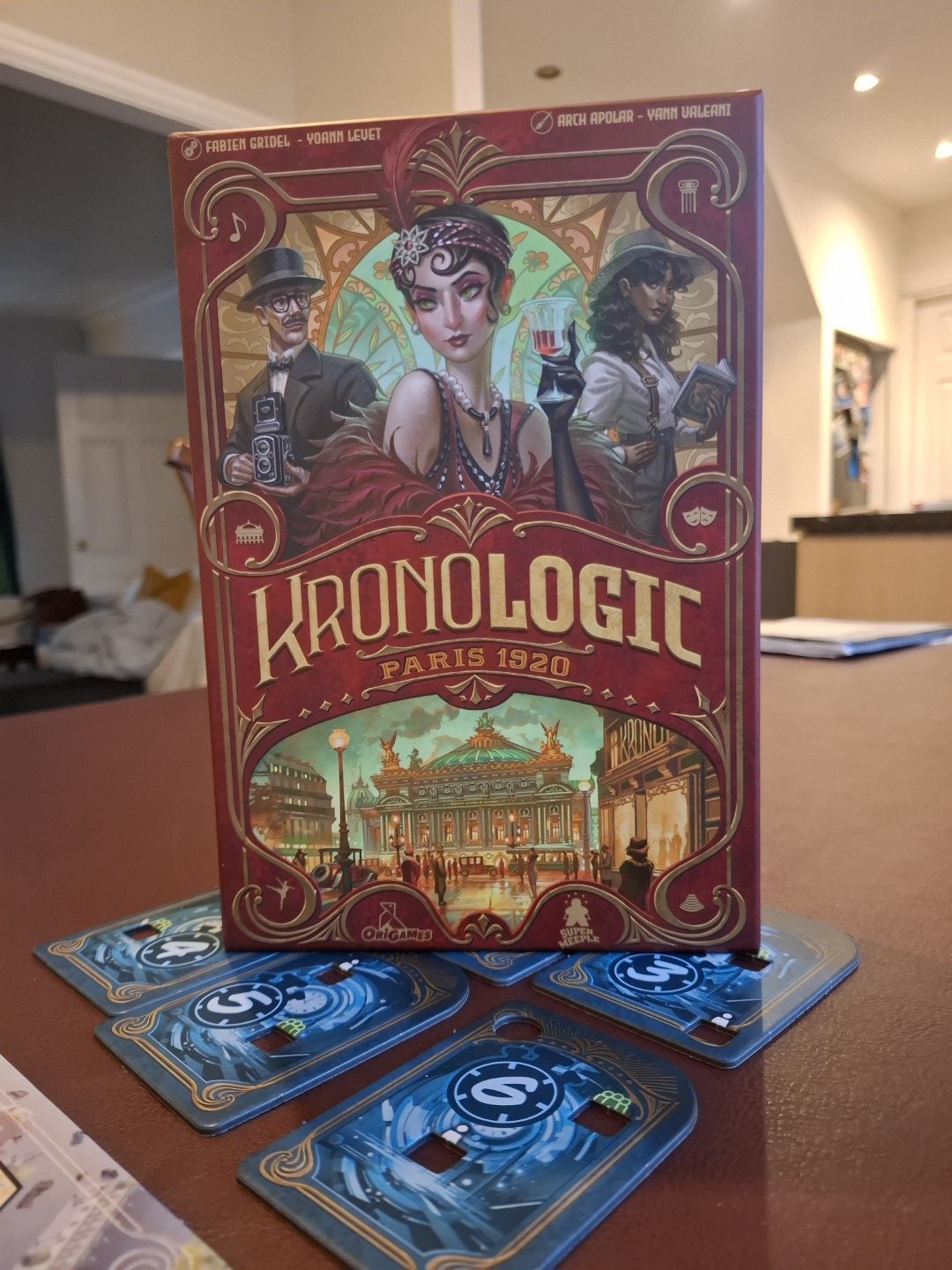I almost forgot that I sat through two playthroughs of Kronologic at UKGE 2024. I found myself wishing largely for the experience to end. It felt tedious, and very much like going through the motions. Of visit a location, ask a question of either how many characters were in a location at a given time. Or the total number of times a specific character visited a location. It all felt a bit mundane, now maybe it was the UKGE effect – a phenomenon I’ve come to call the “Games don’t play like they do at the expo”.
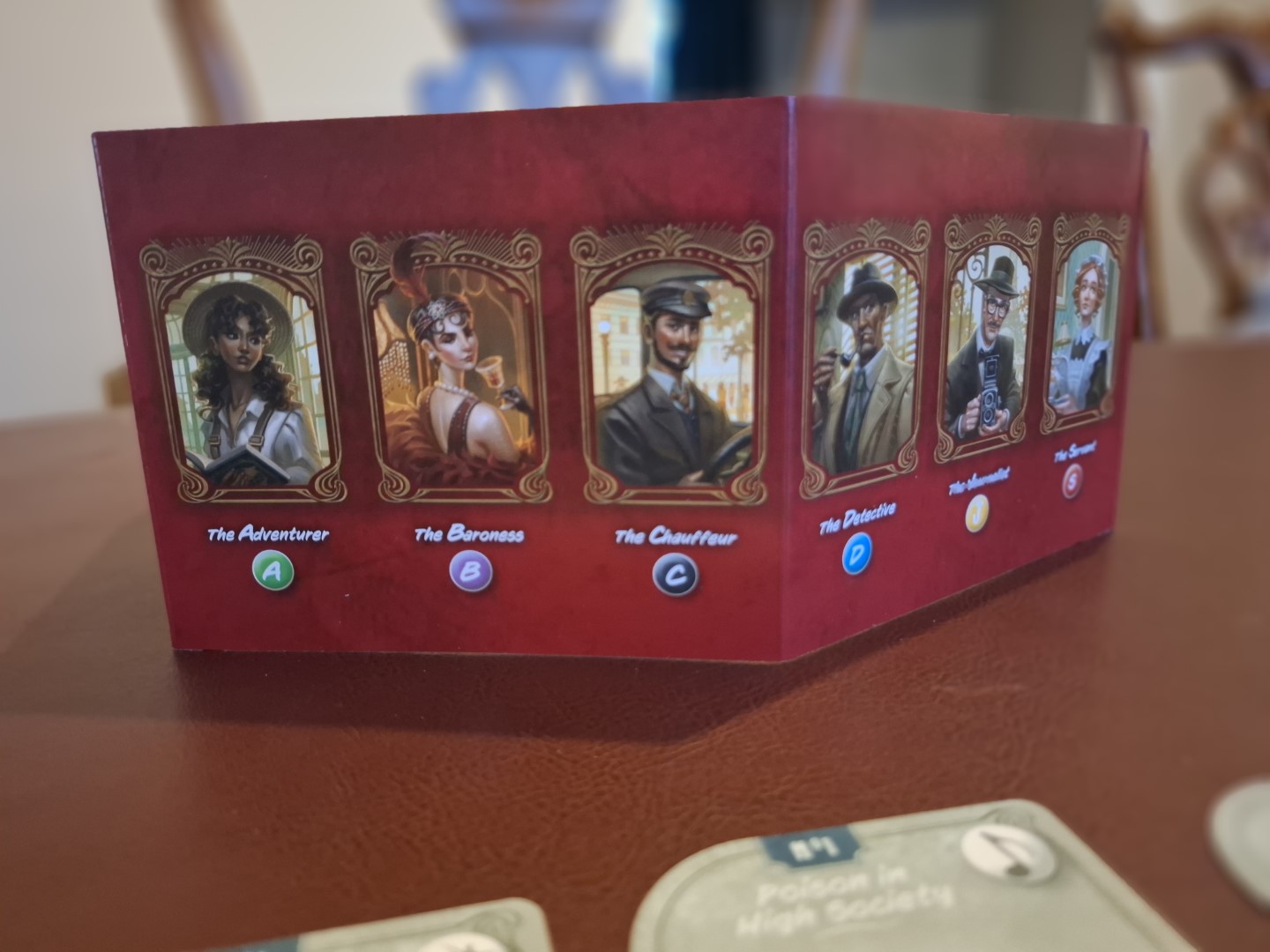
The UKGE effect
In both a good and bad way. For example, last year we tried Artemis project, got home and realised we’d been taught it completely wrong. Or the year we were taught Codinca, bought it, got it home and realised it was terrible.
a) because we were taught it wrong
b) the actual game as per the rules was terrible.
Therefore, generally I no longer actively try and learn new games at the expo and my first Kronologic experience may reflect that. (AND that means no UKGE for 2025)
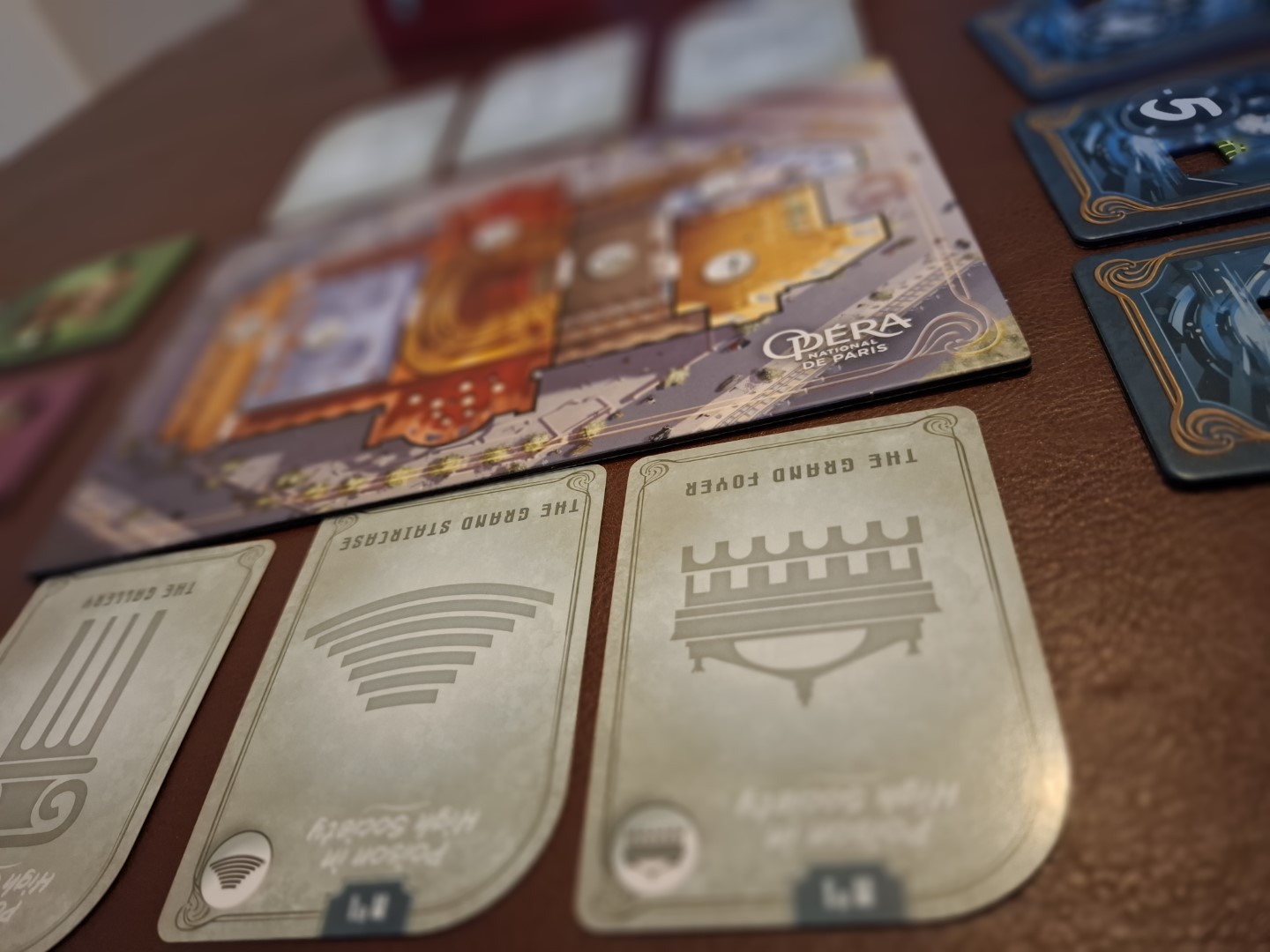
However, having now sat down and digested Kronologic. It’s palatable, enjoyable and one that hits alot of good notes, but are any of them brilliant?
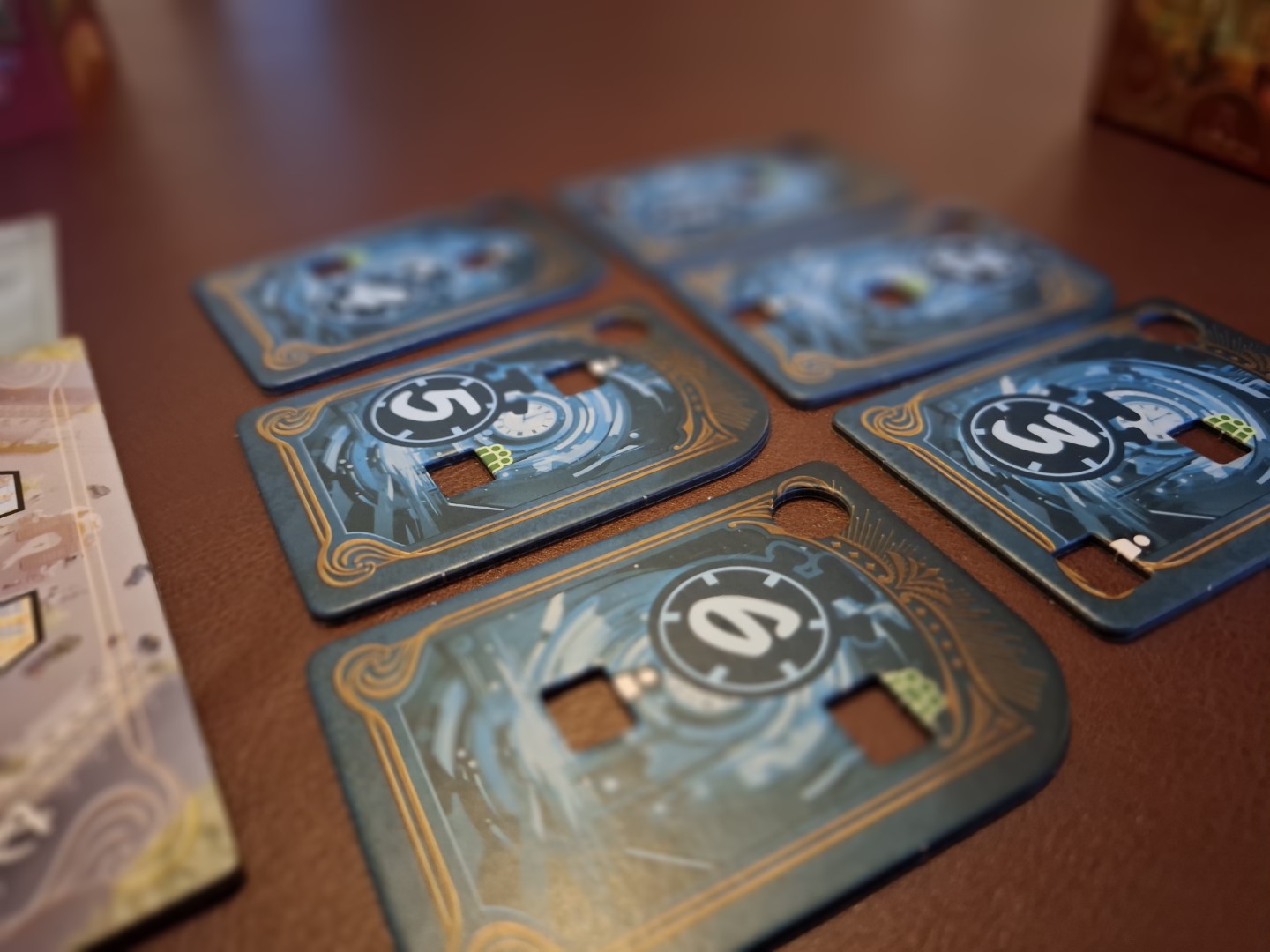
How to play
Kronologic, takes place over a number of rounds until either everyone gives up/guesses incorrectly (yet to happen) or someone manages to solve the investigation. To start you’ll pick an investigation from one of the scenarios ranging in difficulty and the questions you’ll need to answer. Each player is given a player screen, note sheet, and then the game is afoot! In the centre of the table, you’ll place time and character placards and matching location cards, then the map. After determining the start player, players will take turns to investigate a specific location. And answer either “the number of characters at a location at a given time” or “the total number of times a specific character passed through that location”.
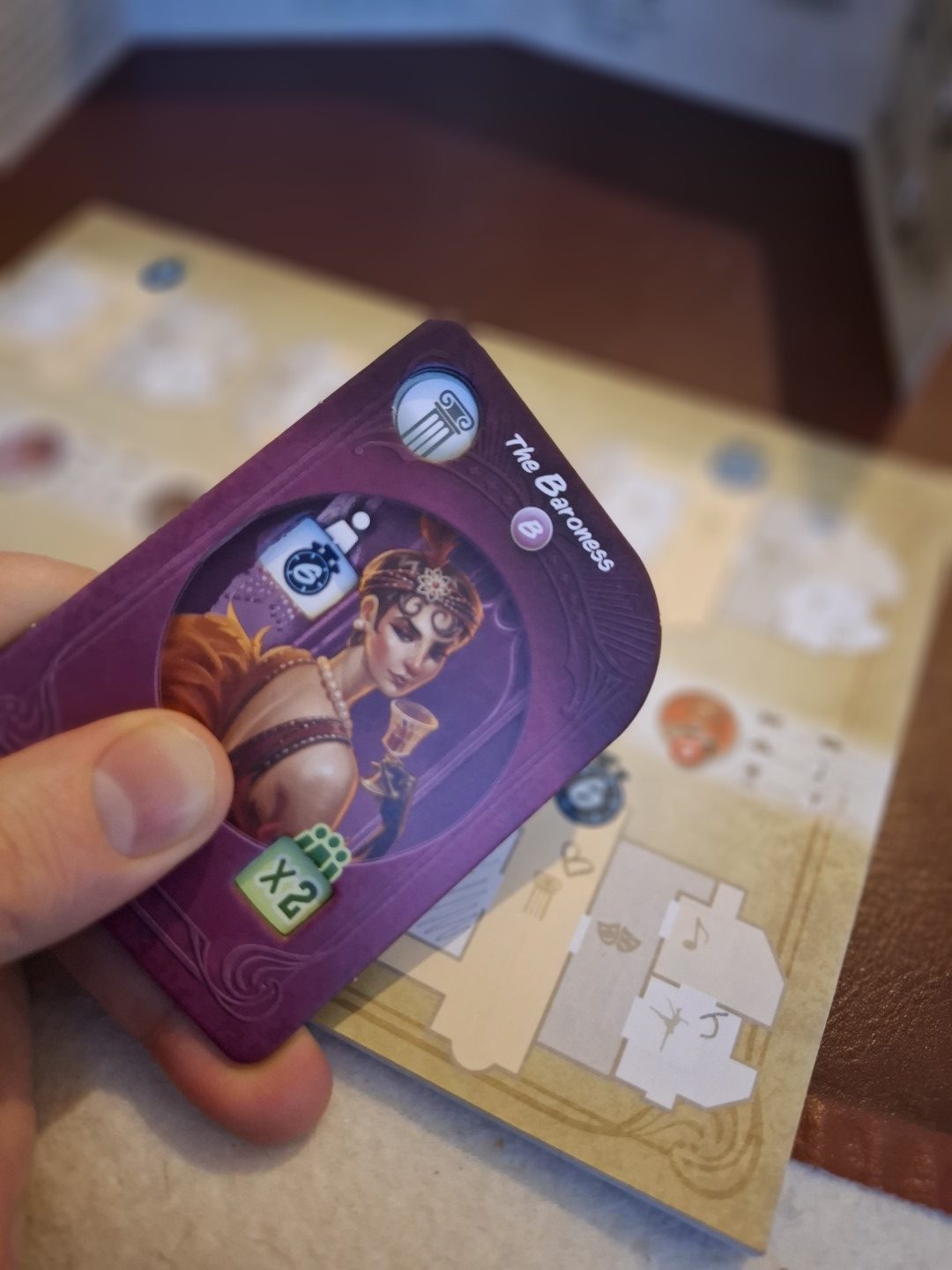
To do this, you’ll encounter what is only a piece of brilliance in components, the location and placards. On the back of each location, is a mixture of symbols, and it’s only through using the placards that these will make any real sense. Each character moves 1 space every hour, so you’re in a way plotting their journey’s through time to answer the case’s questions. The placards are either for specific characters e.g. the adventure or time I.e time 6.
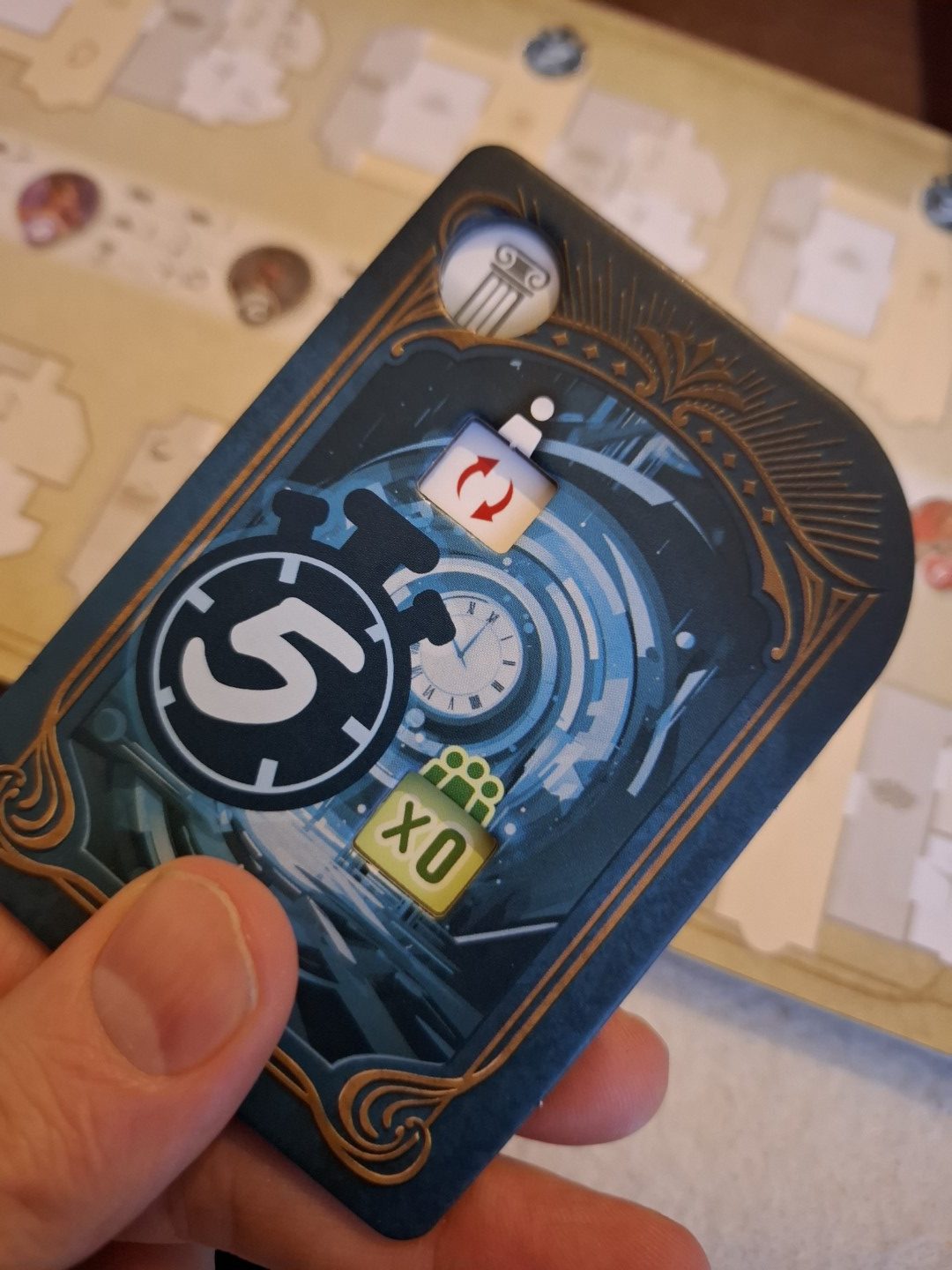
Information is the key!
Each will reveal a piece of private information that is yours and yours alone. The other piece of information is shared information that you must share with all other players. Now you may see a recycle icon. This means you get another turn, because you haven’t gained any private information and is the games way of keeping balance.
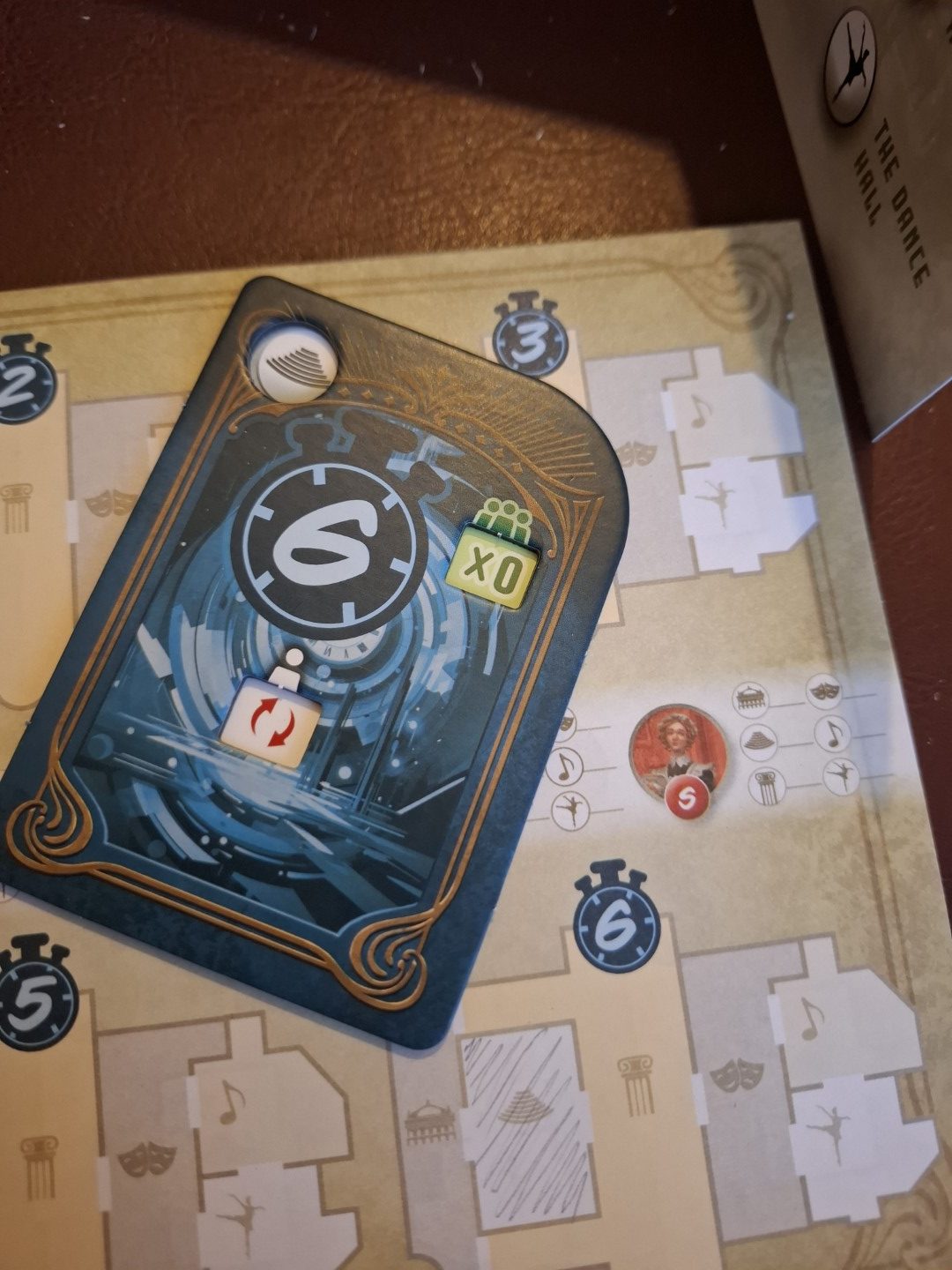
You’ll just keep going around and around the table taking turns. Adding notes to your player sheet until someone declares that they think they know the answers. At which point they will write down their answers and then compare these against the scenario book, if that player correct, they win. If not they are eliminated and the other players continue. Until someone has guessed correctly or if everyone has guesses and was wrong, then everyone loses.
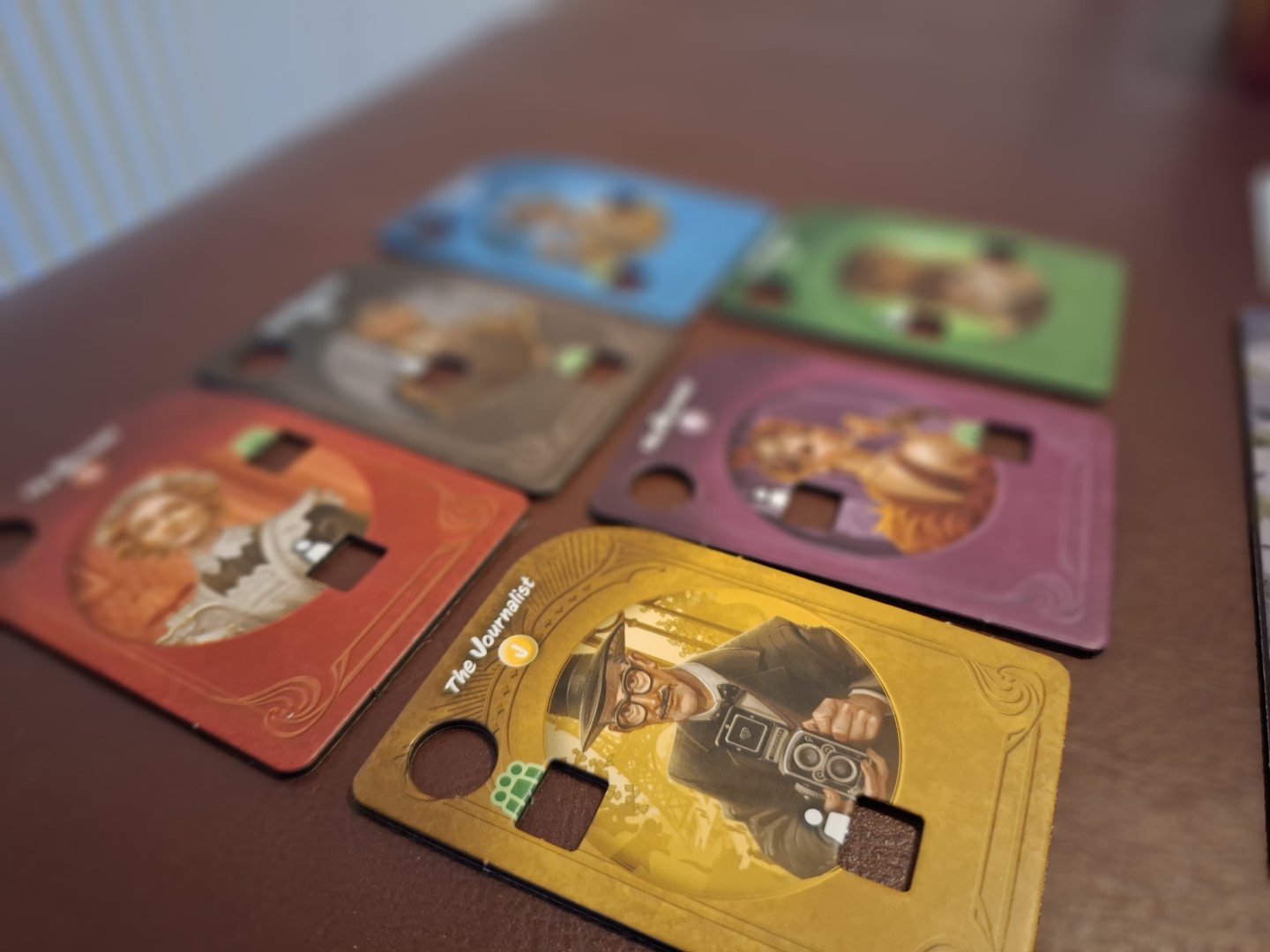
Initial Thoughts
On the face of it, Kronologic isn’t held back by rules, its more enabled by them. Although they aren’t perfect. Despite the ease of teach and the ability to get playing in probably about a minute, there’s one rule that I dislike. The guessing rule, in other mystery type games there’s the ability for people to guess at the end of the round and players share victory. Whereas in Kronologic anyone can claim they know the answers and win, therefore, giving a turn advantage. Now the rules do say that if people guess at the same time. But if I guess and my friend John says he’ll now guess too because I’m guessing, that seems like a wonky rule. And after 6 plays, it feels like the players earlier in turn order have won most of those games.
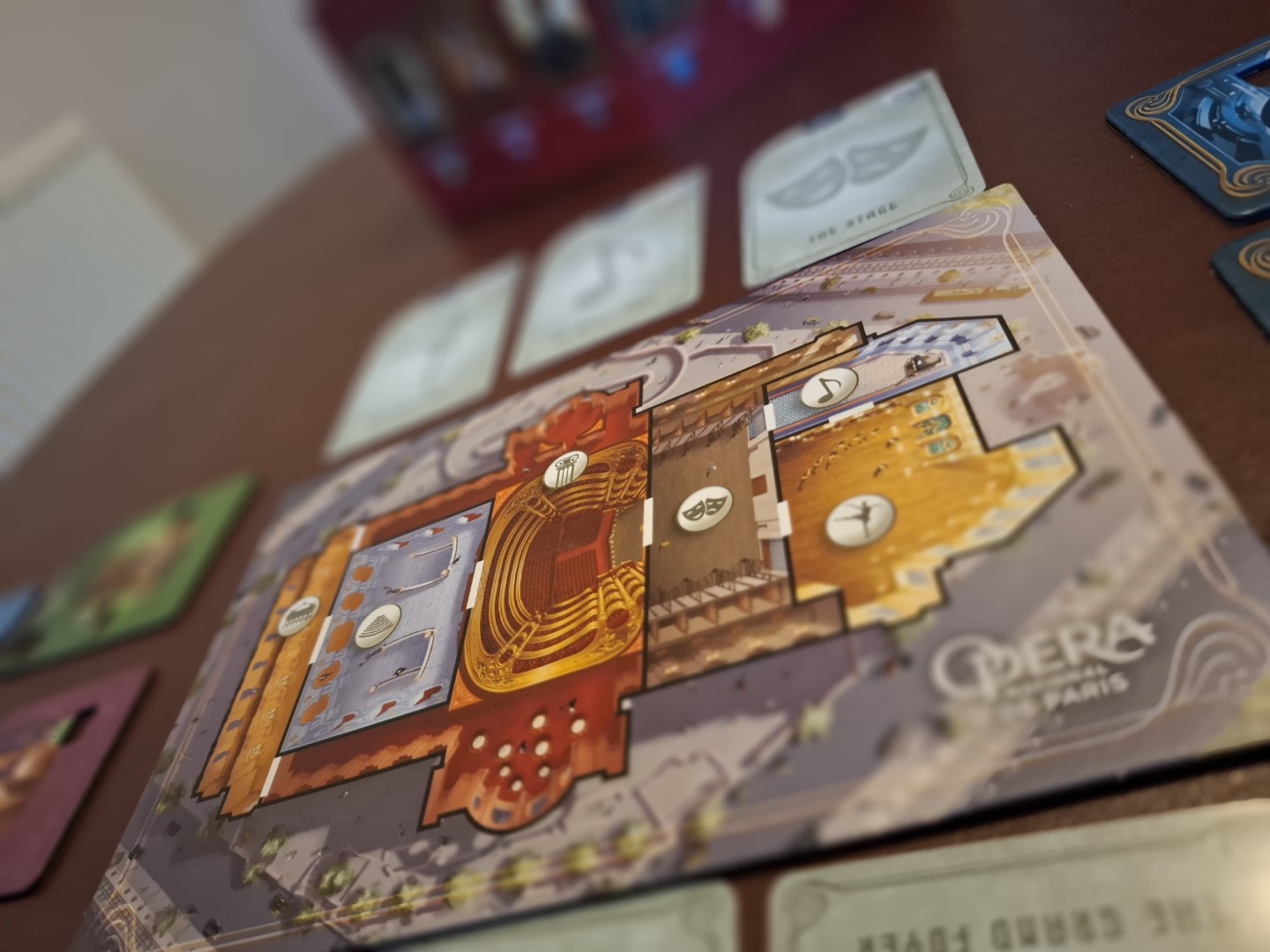
Now you could just change this to at the end of each round all players can attempt to guess. Or there’s some sort of mechanism where players simultaneously reveal whether they are guessing. This could be a minor tweak, but it does mean more components! I may add it as a house rule going forward.
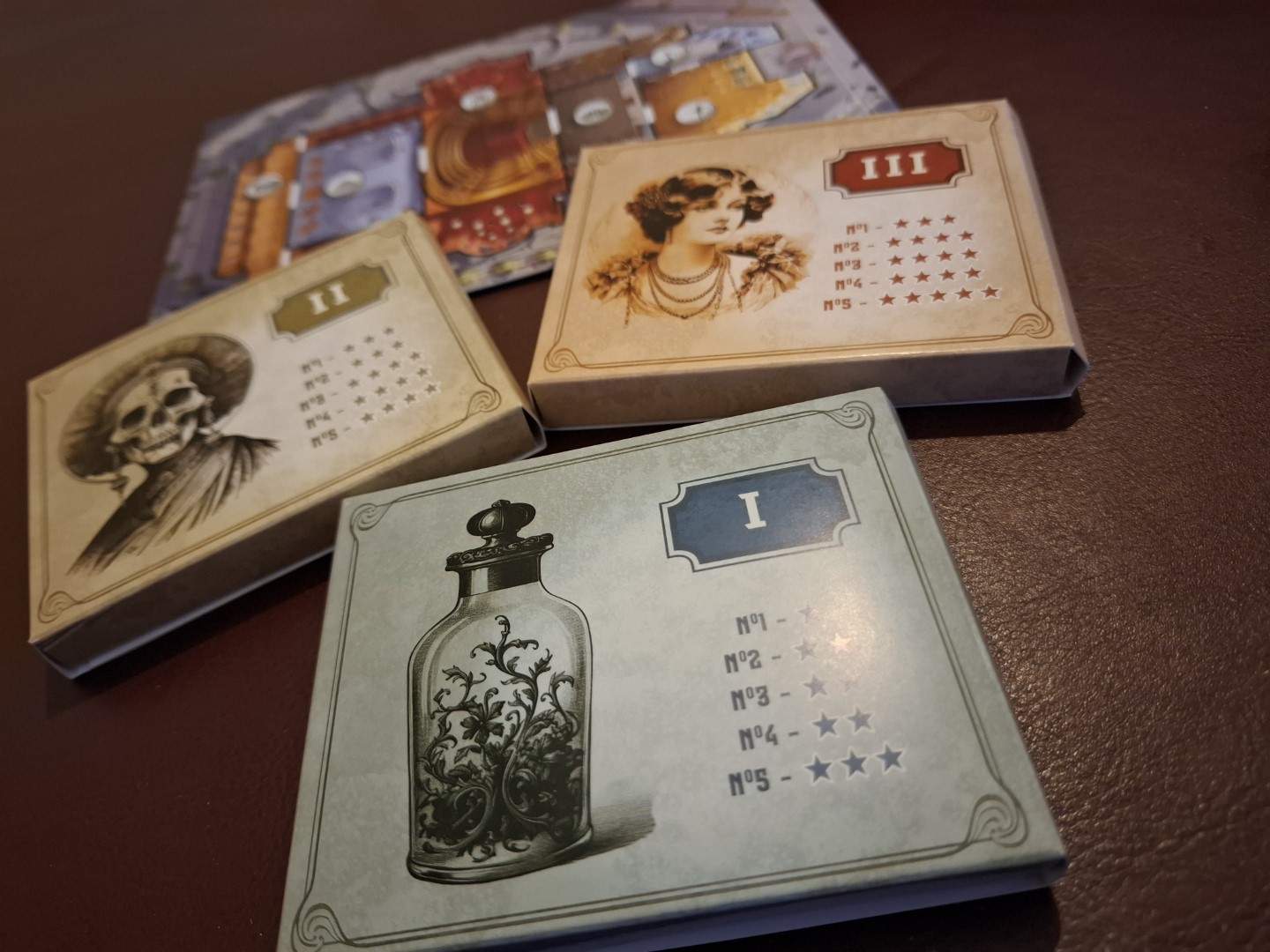
Replayability?
Another concern could be the replayability as there’s only 15 scenarios in the box. But, being unable to recall the scenarios I played at UKGE and there being a wealth of print and play scenarios. It feels like this is a minor concern, unless you have a very very good memory or you decide to work through the scenarios back-to-back. Even if you could recall the scenarios, you could shuffle these up and just say we’re playing this scenario here’s the starting information. I feel like that could be a way to help mitigate this, but if your memory is that good, maybe this method wouldn’t hurt.
But then, there needs to be a sense of realism here, there’s 15 scenarios in a £20 box. With the scenarios taking about 30-45 minutes. So realistically, you’ve 15 scenarios for 4 players so £1.33 a scenario or 33p per player per scenario (assuming you play with 4 players). There’s also the potential to play with 6 players, if you’re prepared to accept some additional balancing issues (in that you’ll get more imperfect information and perfect information less often) and a bit longer of a wait for your turn. But it plays alot quicker at two players, more like 15-20 minutes. This means that value decreases further and its probably feasible that you’ll get through a series of investigations in an evening.
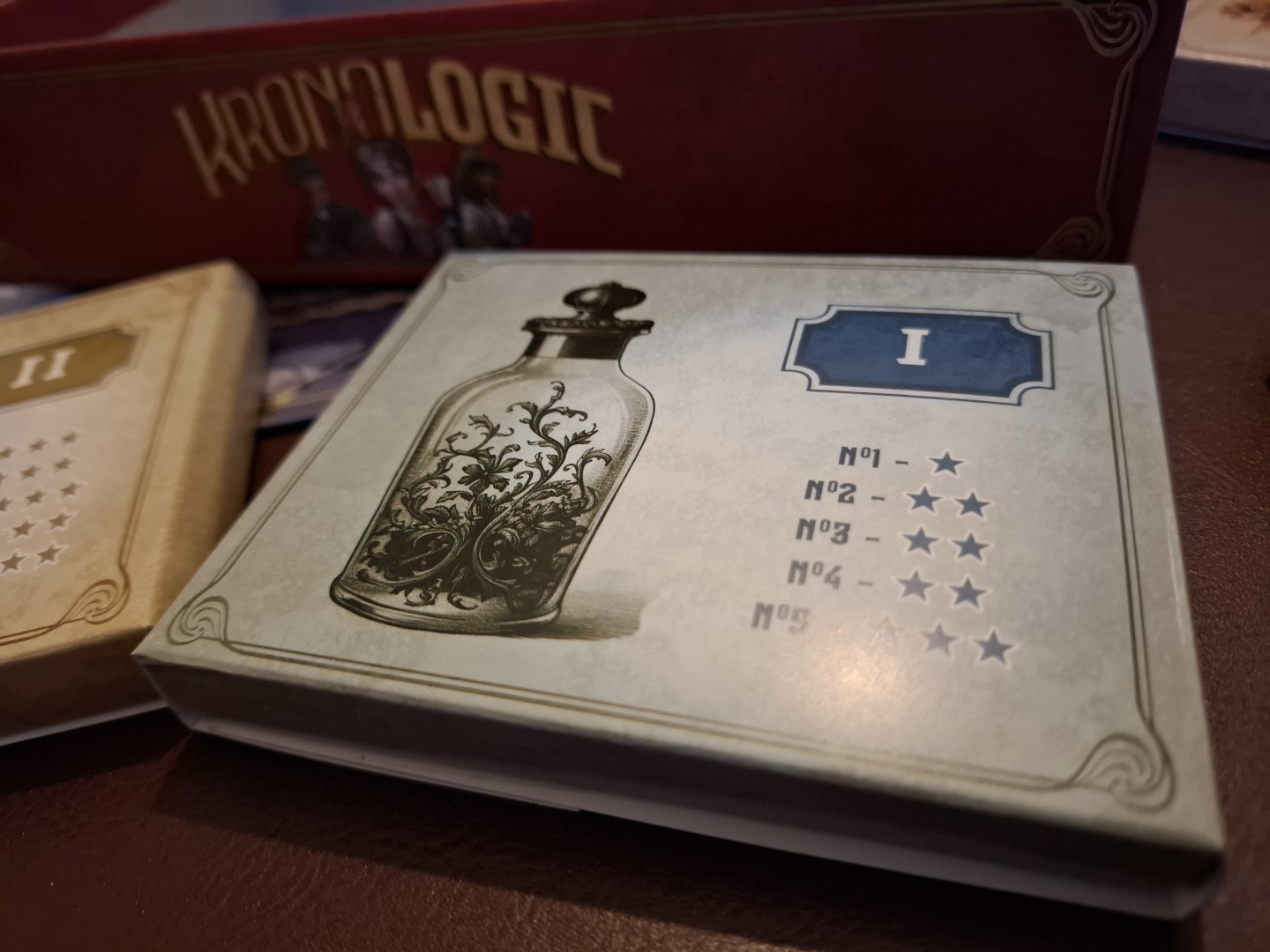
And I think that’s a key consideration, at two players, you feel like you’re getting alot of information turn after turn because of how quickly turns come around. Whereas at higher player counts, it feels like you will be going to visit locations that other players have given you public information. A better way to explain this, is that at two players you get private information and public information at a 1:1 ratio. At four players, you get private information and public information at a 1:4 ratio, which makes the puzzles feel more difficult to solve. If you increase the players to 6, you’ll be at a 1:6 ratio! (Someone will correct me on these ratios…)
As you know, I rate games on a scale of:
Buy or play
Wait for sale or play if you like game XYZ
Avoid
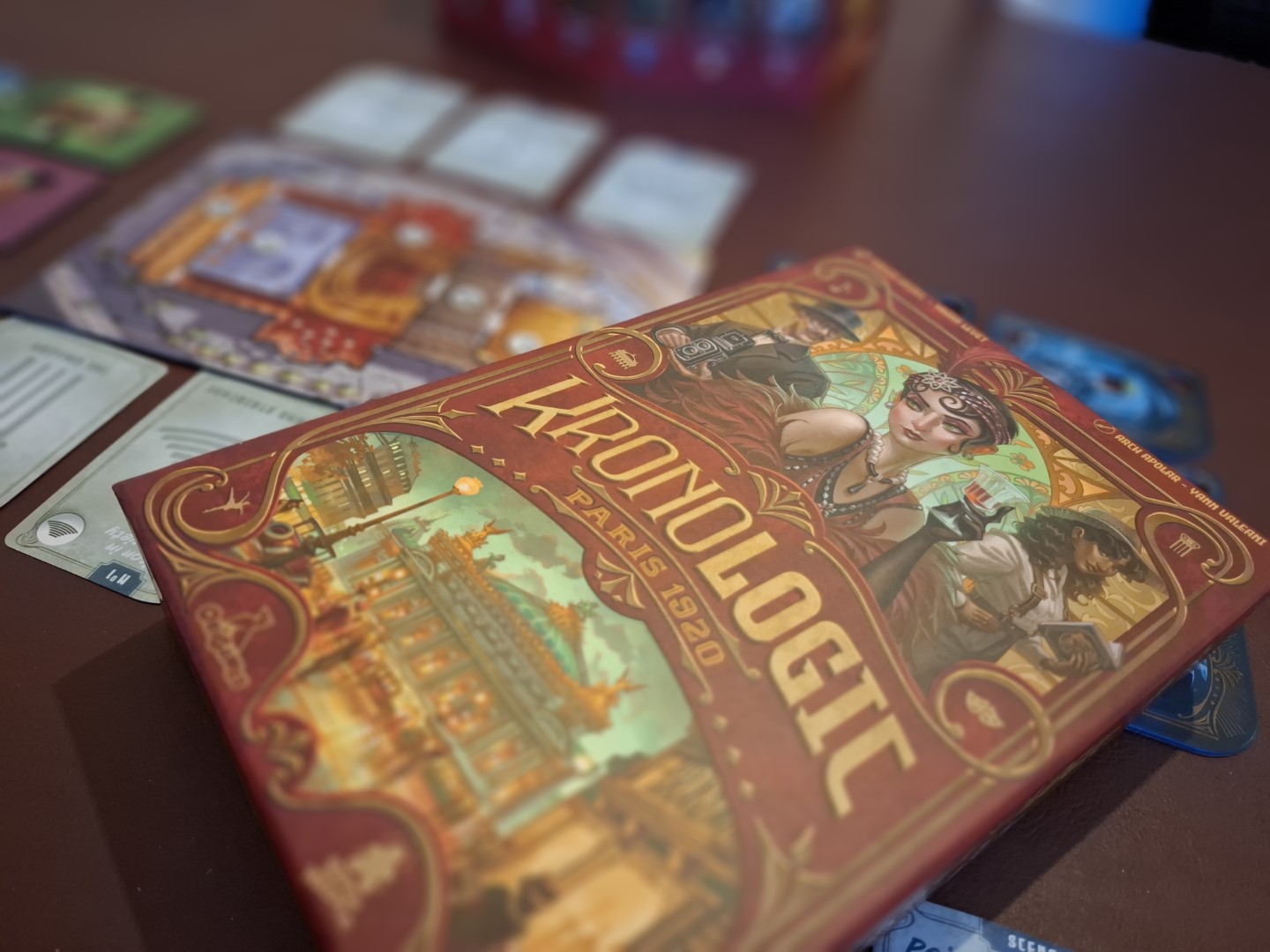
Final Thoughts
Kronologic gets a firm play recommendation from me. I’m not sure it’s a definitive buy though because of a) how much content there is in the box, and for some people that will make a big difference. There is enough sheets here though that you could print components for extra scenarios or you could play through and then pass to a friend. B) it’s not perfect, if you’re wanting a game where everyone has an equal opportunity to win, there’s a rule or tweak to existing rules missing.
Can I draw a comparison? Having not played Awkward Guests or Turing Machine, I can’t draw a comparison to those. But I can make a comparison to Sherlock Holmes Consulting detective, Watson & Holmes, Exit series/Unlock. It’s much easier than Sherlock Holmes Consulting Detective, and I don’t feel like an idiot at the end – although I haven’t tried any of the highest difficult investigations here! It probably has a similarity to Watson and Holmes, because of its accessibility in that you can pick up and play with probably anyone, which maybe makes it more comparable to Cluedo (or Clue). It could be compared to the Exit/Unlock series in that small box experience and bang for buck type thin. Although Kronologic feels like it offers alot more in that space as there’s no destroying of components.
